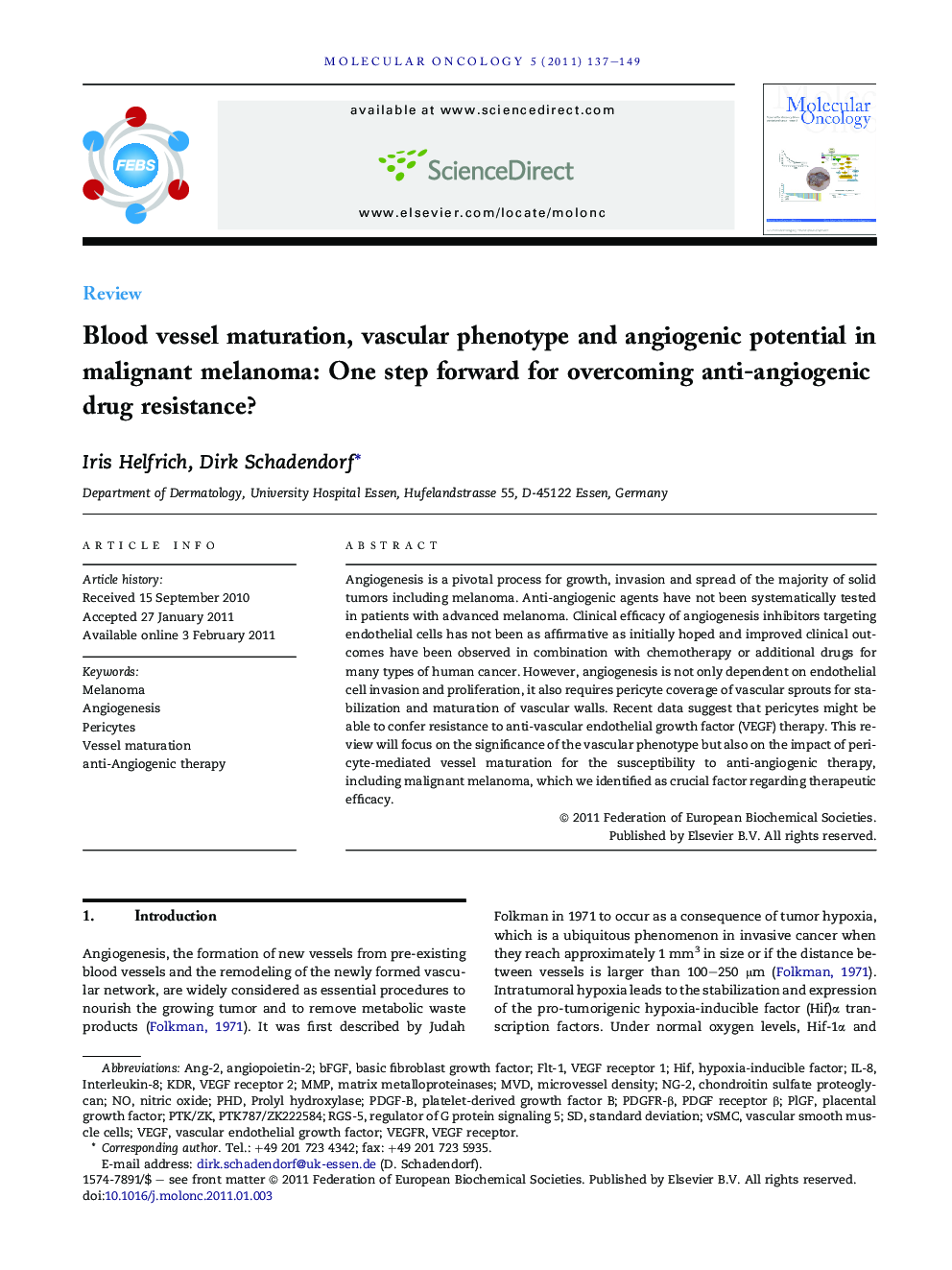| Article ID | Journal | Published Year | Pages | File Type |
|---|---|---|---|---|
| 2146019 | Molecular Oncology | 2011 | 13 Pages |
Angiogenesis is a pivotal process for growth, invasion and spread of the majority of solid tumors including melanoma. Anti-angiogenic agents have not been systematically tested in patients with advanced melanoma. Clinical efficacy of angiogenesis inhibitors targeting endothelial cells has not been as affirmative as initially hoped and improved clinical outcomes have been observed in combination with chemotherapy or additional drugs for many types of human cancer. However, angiogenesis is not only dependent on endothelial cell invasion and proliferation, it also requires pericyte coverage of vascular sprouts for stabilization and maturation of vascular walls. Recent data suggest that pericytes might be able to confer resistance to anti-vascular endothelial growth factor (VEGF) therapy. This review will focus on the significance of the vascular phenotype but also on the impact of pericyte-mediated vessel maturation for the susceptibility to anti-angiogenic therapy, including malignant melanoma, which we identified as crucial factor regarding therapeutic efficacy.
